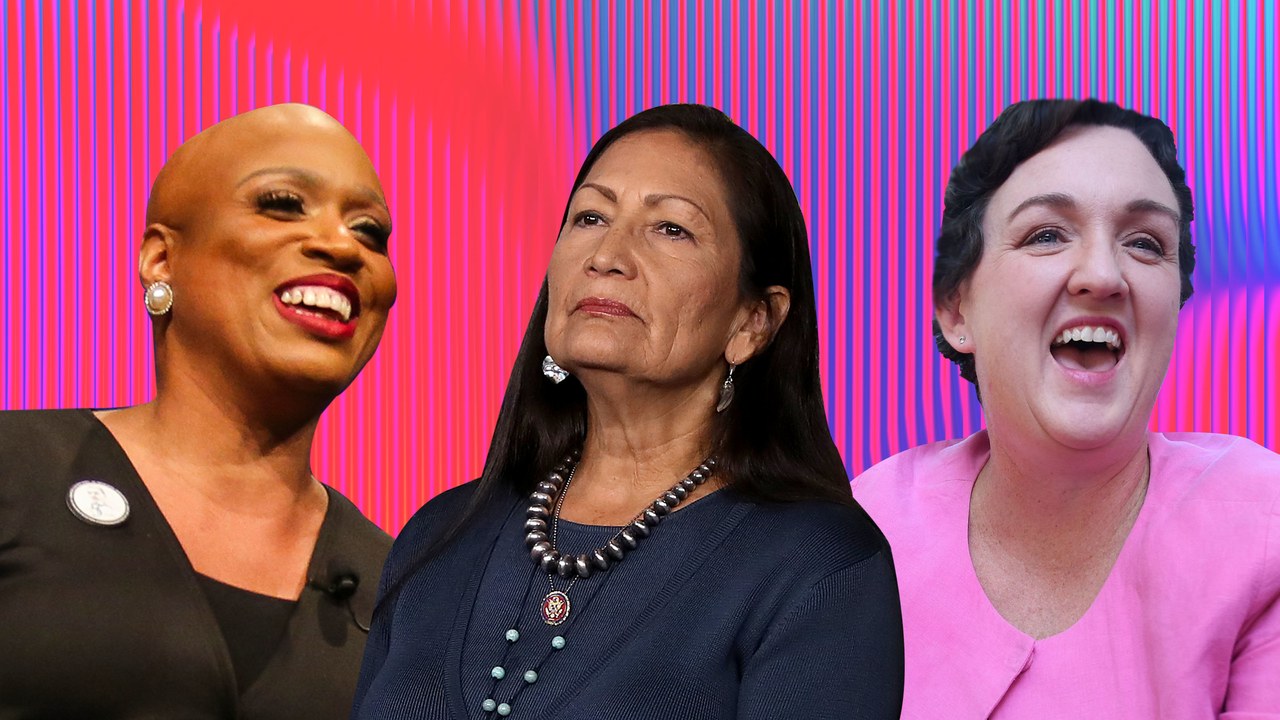Elizabeth Warren’s Campaign Cochairs Are Models of Female Leadership

In an email, Warren emphasized the unique skills that her cochairs bring to her presidential race: “I’m so honored to have these women as leaders in our campaign. They were part of the wave of women in 2018 who volunteered, organized, and won, up and down the ticket. They didn’t wait their turn to make change. They got in the fight, advocating for a government that works for everyone, not just the wealthy and the powerful. They inspire me, they inspire my team, and they inspire millions of little girls all across the country.”
It’s true that the three cochairs—personable and popular in their own right—are a boon to Warren, showing up to motivate crowds for the candidate even when she can’t be in a given state or at a certain event in person.
But in conversation with them, something else becomes clear. On the trail and in interviews for stories like this one, the women also make the case for a more purposeful investment in female leadership—at the top of the ticket and in public life. “We reflect the variety of ways in which women come into public service,” Porter says. “The fact that Ayanna was a city councilperson, the fact that Deb was an organizer and the head of her state party, the fact that I was someone who flipped a district—each of us in our own way has that direct life experience. And now we’re building and growing a sustainable movement for change.”
The aim, in other words, is bigger than Warren, although for Porter in particular much of it can be traced back to her. She has known Warren since her own time at Harvard Law School, when she enrolled in Warren’s class on bankruptcy law. (This is a detail that tends to crop up in profiles of Porter; the student and the professor, now the representative and the senator.) “I sat in the front row; I thought if I did that she might not call on me,” Porter recalls. The class was held at 8 a.m. Warren had an excellent reputation, according to Porter, but the course was intense: “It was not a class that attracted people who just wanted to skate.”
Almost two decades later, Porter can still recite portions of Warren’s first lecture. “One of the things that means so much to me as a cochair is to hear her talking now about those fundamental same issues,” Porter says, ticking through them. “How do we create an economy that gives every hard-working American an opportunity to be successful? How do we think about balancing the incentives that capitalism creates for people and businesses to take risks, to invest in themselves and grow…with some of the hardships?”
But Warren’s influence wasn’t theoretical; Porter didn’t just feel it in the solidification of her values or in her approach to the law, but she felt it in her real life to. After several months in law school, she had begun to think that she too might want to be a professor, despite the odds for women in the field then. She and Warren went for lunch near campus at local institution Border Cafe, and on their short walk back—“Elizabeth is a notoriously fast walker”—Porter broached the subject. “I was working to keep up with her, and I remember getting my nerve up to tell her that I thought I wanted to be a law professor. And I framed it like, ‘I want to try. I want to try to become a law professor.’”
She had told some of her other mentors as much, who’d encouraged her, albeit without much real direction. Warren, as Porter remembers it, had a different reaction. “Elizabeth immediately said, ‘Wonderful, let’s get a plan.’” When Porter hears her talk about her mentor’s plans now, with almost the same words—Warren has a plan for that—it makes her smile. That’s a leader, she thinks, a person who can show people what’s possible.
And how. In 2016, less than three weeks after Donald Trump was elected president, Porter decided to follow Warren’s example once more and run for office. When she told her former professor, Warren responded with two assurances that Porter can still quote. First, she said: “I will be with you every step of the way.” And second: “You will love being a candidate, because every day you’ll have the opportunity to learn something, to hear a story you haven’t heard before, to see a pocket of your community that you didn’t know existed.”
